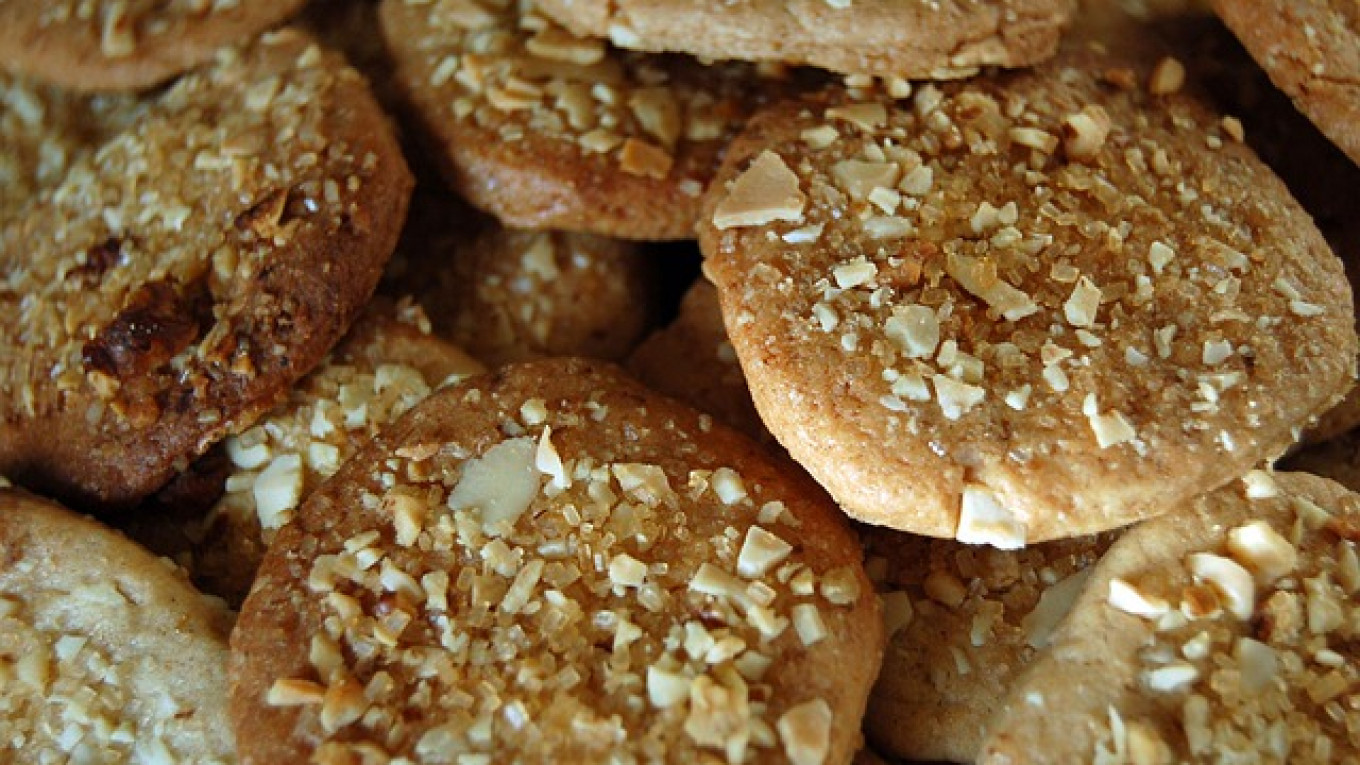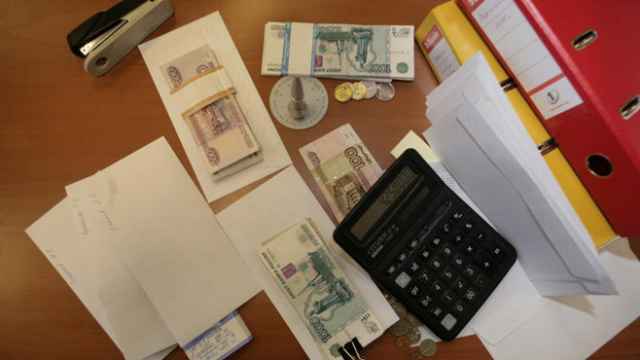Russian imports of сookies and other sweet baked goods fell 67 percent in the first four months of this year compared to the same period in 2014, as ruble devaluation and sliding wages forced many to buy cheaper domestic brands, a report said Tuesday.
Sugary baked goods imports fell to just 5,900 tons between January and April, compared to 18,200 tons during the same period last year, according to market analysts at the Center for Confectionary Market Research. The market value of the imports, which include cookies, cakes, waffles and other products, dropped from $49.6 million to $18.6 million.
The crumbling cookies market is due to "the faster price growth on imported baked goods thanks to ruble devaluation and in general, the reduction of [Russians'] purchasing power," the center's CEO Yelizaveta Nikitina said in a press release.
The ruble has fallen by nearly 40 percent to the U.S. dollar since the start of last year as low oil prices and Western sanctions over the Ukraine crisis depress economic growth. The economy is expected to contract by around 3 percent this year.
The ruble devaluation has spurred inflation and caused a sharp decline in real wages, which fell 13.2 percent in April year-on-year, the steepest monthly fall since 1999, according to state statistics agency Rosstat.
Expensive foreign products, however, aren't stopping notoriously sweet-toothed Russians from getting their cookie fix. As prices rose, the Center for Confectionary Market Research said that many Russians were switching to cheaper, domestically made brands.
Russians consumed a total of 1.61 million tons of sweet baked goods last year, according to data from Rosstat.
A Message from The Moscow Times:
Dear readers,
We are facing unprecedented challenges. Russia's Prosecutor General's Office has designated The Moscow Times as an "undesirable" organization, criminalizing our work and putting our staff at risk of prosecution. This follows our earlier unjust labeling as a "foreign agent."
These actions are direct attempts to silence independent journalism in Russia. The authorities claim our work "discredits the decisions of the Russian leadership." We see things differently: we strive to provide accurate, unbiased reporting on Russia.
We, the journalists of The Moscow Times, refuse to be silenced. But to continue our work, we need your help.
Your support, no matter how small, makes a world of difference. If you can, please support us monthly starting from just $2. It's quick to set up, and every contribution makes a significant impact.
By supporting The Moscow Times, you're defending open, independent journalism in the face of repression. Thank you for standing with us.
Remind me later.






